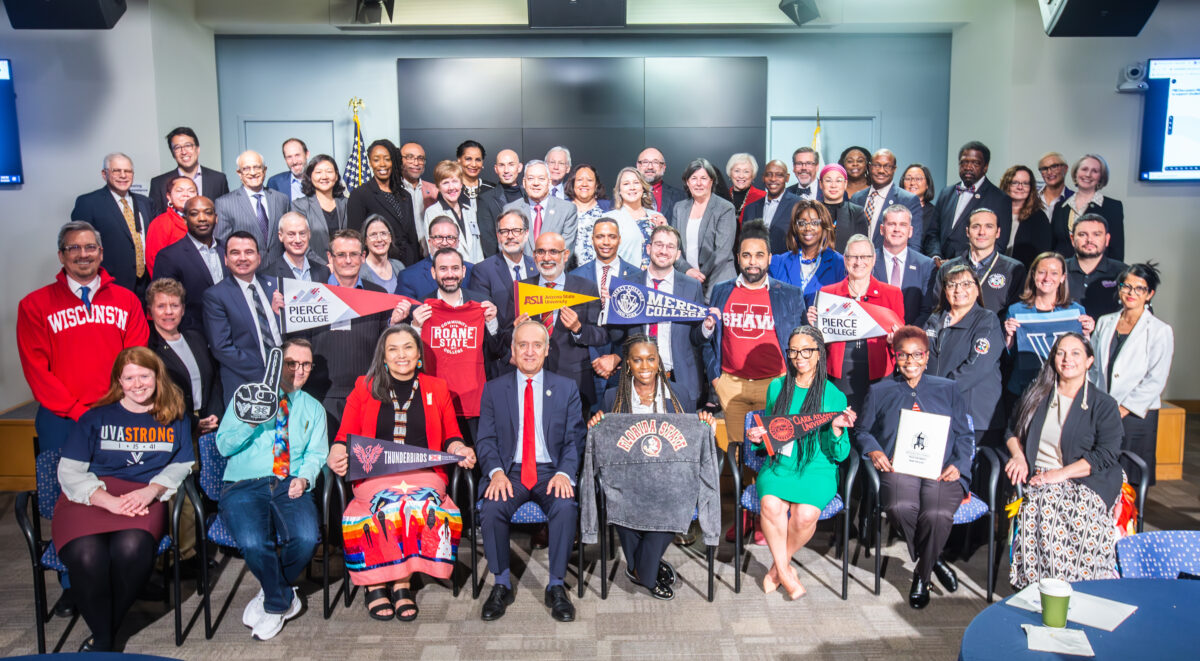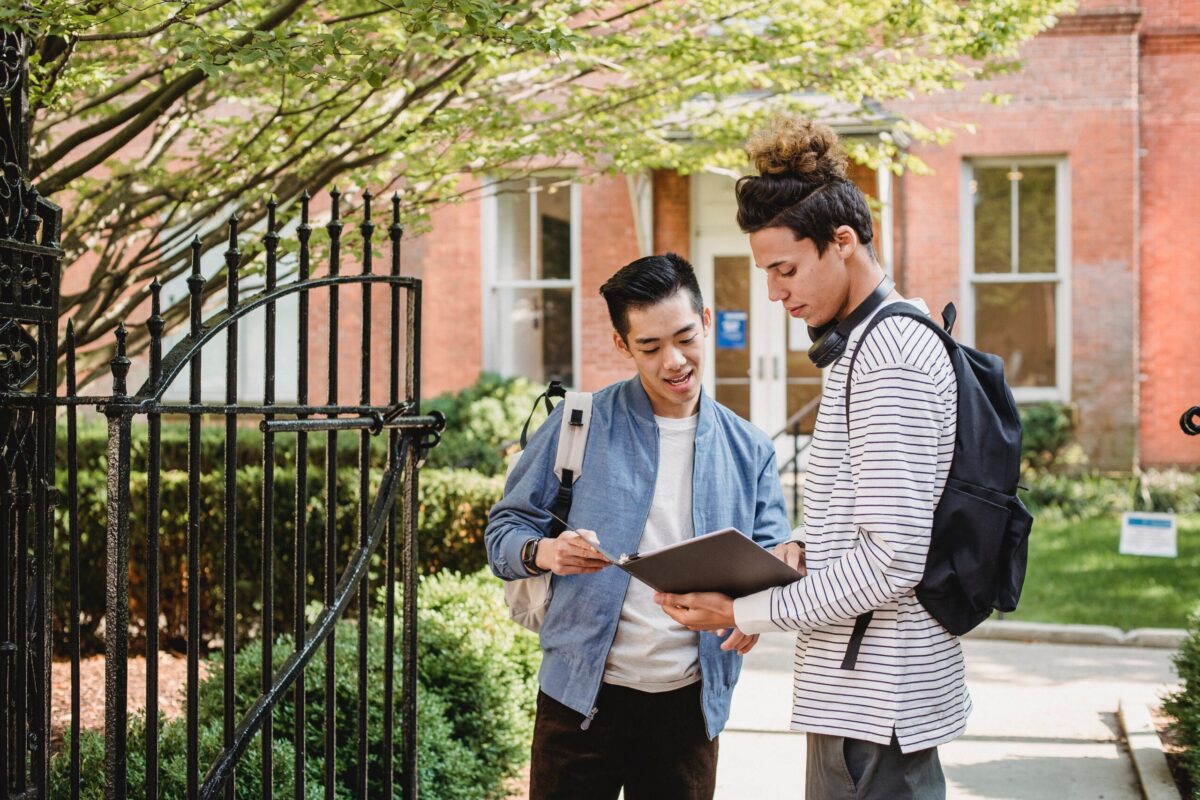Supporting the Whole Student Through Holistic Advising: Reflections on ED’s Raise The Bar Summit
Published May 01, 2024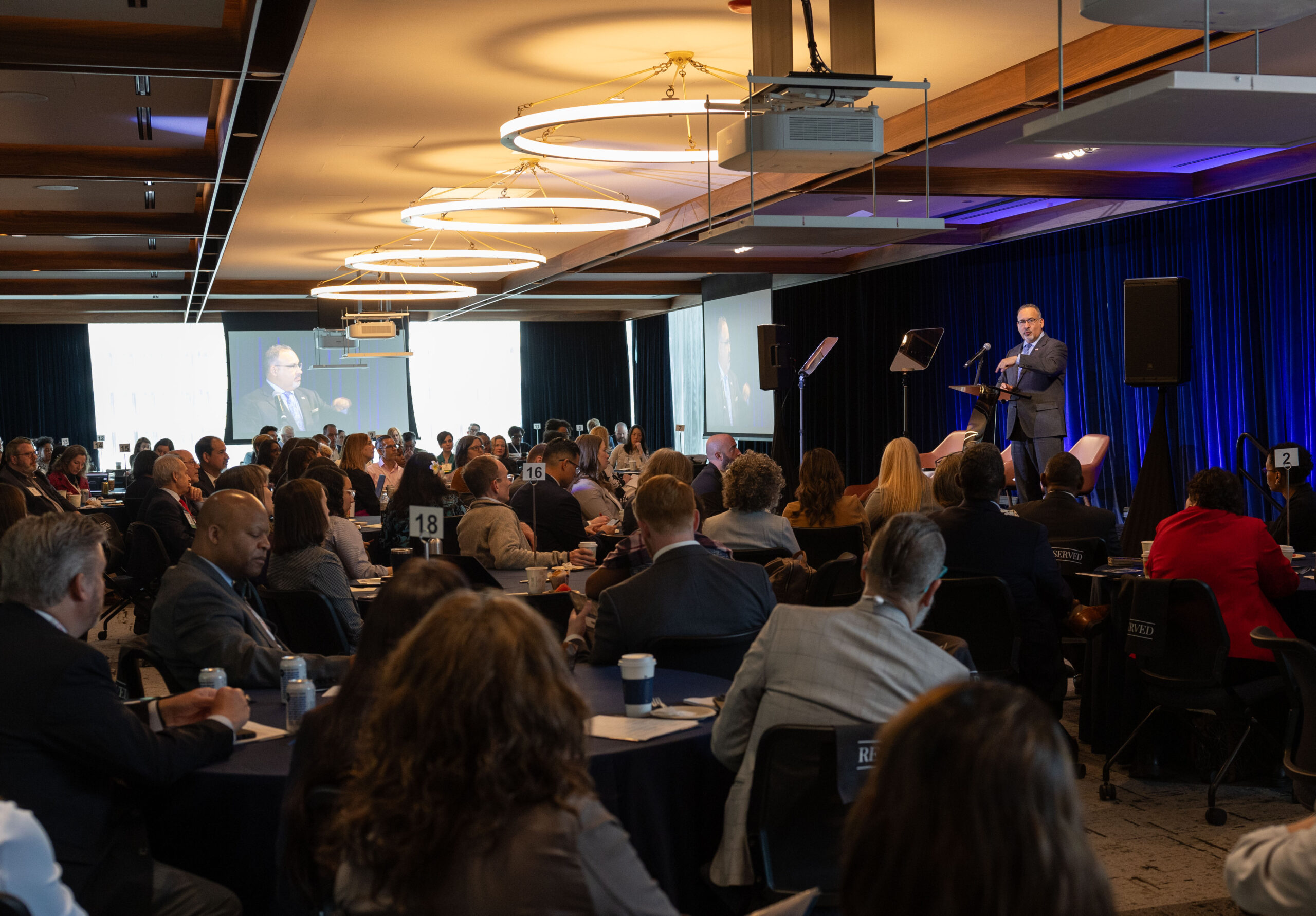
As a first-generation student, U.S. Secretary of Education Miguel Cardona didn’t always know where to turn for help in college. “It wasn’t always easy to know where to go if I needed advice on what classes to take, what to declare for my major, how to get financial aid,” Cardona shared in a keynote at last week’s Attaining College Excellence and Equity Summit.
Not knowing where to find guidance is a common challenge faced by many of today’s college students. To elevate strategies that ease the strain of those challenges to support student success and completion, the U.S. Department of Education 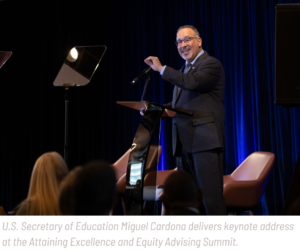 and IHEP convened the summit focused on holistic advising and wraparound support services. The discussions elevated lessons for driving change at the institutional, state, and federal levels, and showcased data-driven strategies and best practices to continually improve advising.
and IHEP convened the summit focused on holistic advising and wraparound support services. The discussions elevated lessons for driving change at the institutional, state, and federal levels, and showcased data-driven strategies and best practices to continually improve advising.
The April 24th event, held at Johns Hopkins University’s DC Campus, explored several key lessons states, campuses, and institution systems can apply to advance equitable student outcomes.
Holistic Advising is Powerful
Experts shared timely research on comprehensive, integrated advising models that support every part of a student’s journey from applying for financial aid, academic success, and classroom-to-career transitions—all while ensuring access to basic needs like food, housing, and mental health supports.
The City University of New York’s Accelerated Study in Associate Programs, or CUNY ASAP, has nearly doubled completion rates, inspiring replications across several states, including California, New York (across the SUNY system), North Carolina, Ohio, Pennsylvania, Tennessee, and West Virginia. “The data and the voices of the students tell you what you are doing or not doing as effectively as you can,” noted Donna Linderman, senior vice chancellor for student success at SUNY, in a keynote discussion.
Resources such as Achieving the Dream’s Holistic Student Supports Redesign toolkit provide evidence-based, practitioner tested tools and guides that help institutions from initial needs exploration through successful evaluation and refinement of holistic advising models.
Collaboration is Key
Collaboration between faculty, advisors, support services, community-based organizations, employers, and students is also key to holistic support. One featured partnership between the City Colleges of Chicago and One Million Degrees is having a measurable effect on student retention and success. 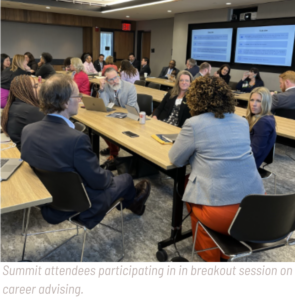 Program participants were 94% more likely to stay enrolled and almost 75% more likely to earn an associate degree and either move into the workforce or pursue a four-year degree, as compared with those who did not apply to the program. One Million Degrees offers coaching, mentoring, and financial and professional guidance.
Program participants were 94% more likely to stay enrolled and almost 75% more likely to earn an associate degree and either move into the workforce or pursue a four-year degree, as compared with those who did not apply to the program. One Million Degrees offers coaching, mentoring, and financial and professional guidance.
Another critical component of advising is helping students envision and achieve their career goals. The Strada Education Foundation led an interactive session on personalized career coaching that fully equips students to succeed in college and beyond. Strada’s State Opportunity Index helps states build a stronger connection between education after high school and equitable pathways to opportunity so students realize the full value of their education and employers have the workforce they need to fill high-demand jobs
Student Connections Matter
Johns Hopkins University students shared how peer-to-peer advising models help ease the transition to campus and can create a sense of belonging within the college community. 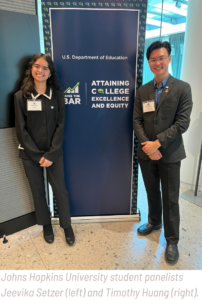
“As an international student, I’ve had my fair share of challenges navigating college life in a new country and adjusting to a new culture,” said senior Daivik Chawla. “…Peer-to-peer connections and thoughtful advising have been instrumental in helping me navigate those challenges with confidence and resilience.”
Johns Hopkins assigns peer mentors randomly, rather than by major. This cross-disciplinary exposure – from electrical engineering to public health and even opera – helps students broaden their horizons, as they learn to collaborate and problem-solve with people who see the world differently.
Success Must Be Scaled
The day’s closing discussion explored how state, system, and campus leaders scale equity-centered, evidenced-based advising initiatives across institutional and state contexts to reach more students. IHEP President Mamie Voight moderated the conversation featuring Gina Browne, senior advisor on equitable student learning, experience & impact at the California Community College System, New Jersey Secretary of Higher Education Brian Bridges, and Donna Souder Hodge, vice president of operations and advancement at Colorado State University Pueblo.
“It is not simply enough to provide opportunity,” Bridges remarked. “Our goal has been to provide opportunity with ample and adequate supports statewide to make sure students can succeed.”
In New Jersey, statewide supports include the Educational Opportunity Fund, Community College Opportunity Grant (CCOG), Hunger-Free Campus Grant Program, and a first-in-the-nation partnership with a mental health and wellness platform to provide free, 24/7 access to virtual mental health services to students.
A “Blue Ribbon Schools” Designation for Universities
The Blue Ribbon Schools Program is a “well-known marker recognized by millions as the standard of excellence in K-12 education. We need this in higher education as well,” Cardona said at the summit. On Wednesday, the Education Department also announced a request for information to develop a new Postsecondary Student Success Recognition Program to uplift institutions that support all students in completing affordable credentials of value that prepare them well to participate in the workforce and their communities. Practitioners and advocates can submit comments to the Department by May 28, 2024.
Read more about the day’s conversations and speakers, and watch the recording below. Photos courtesy of IHEP and the U.S. Department of Education. We are grateful to The Kresge Foundation for supporting IHEP’s efforts to uplift student success strategies.

